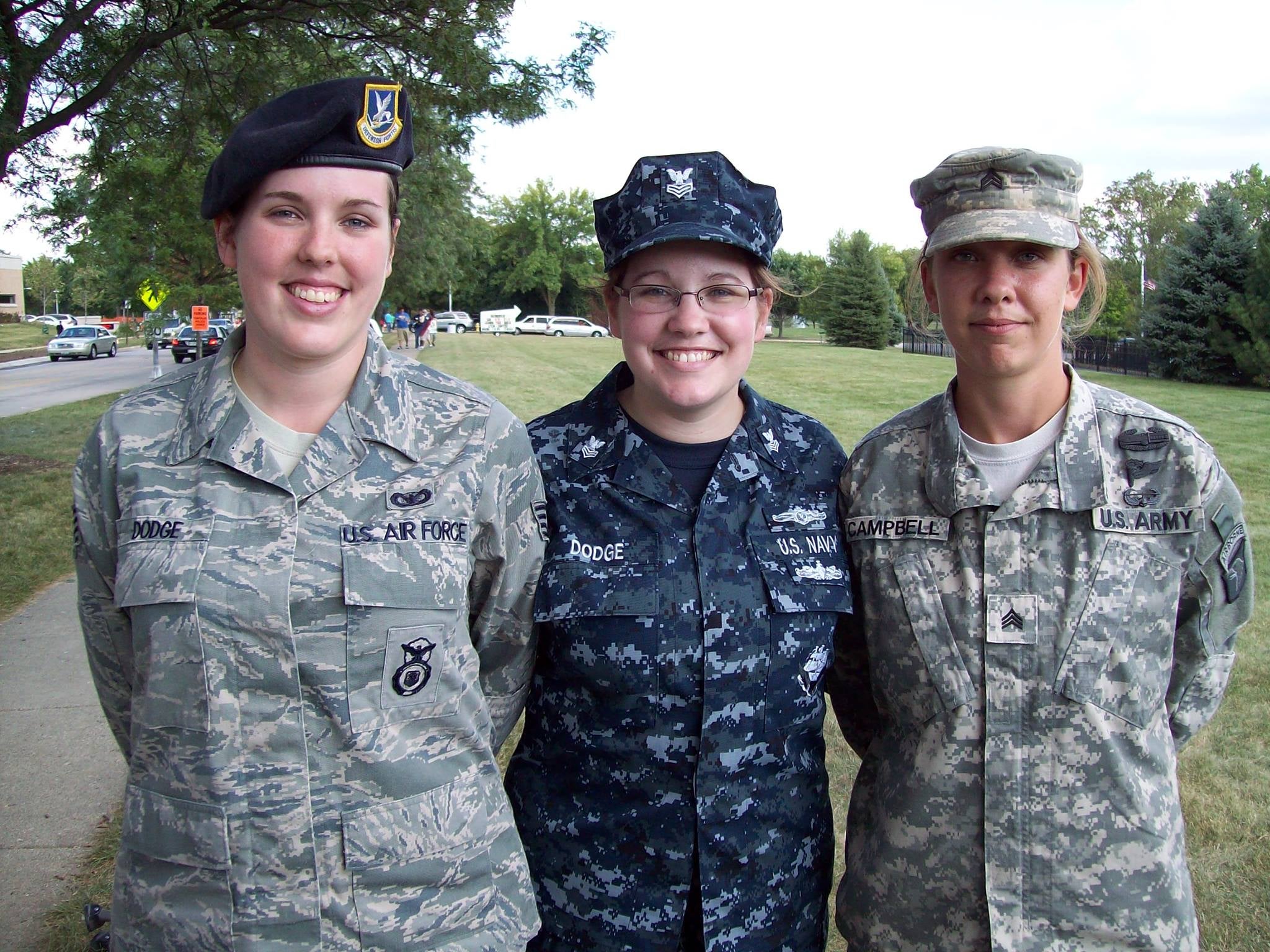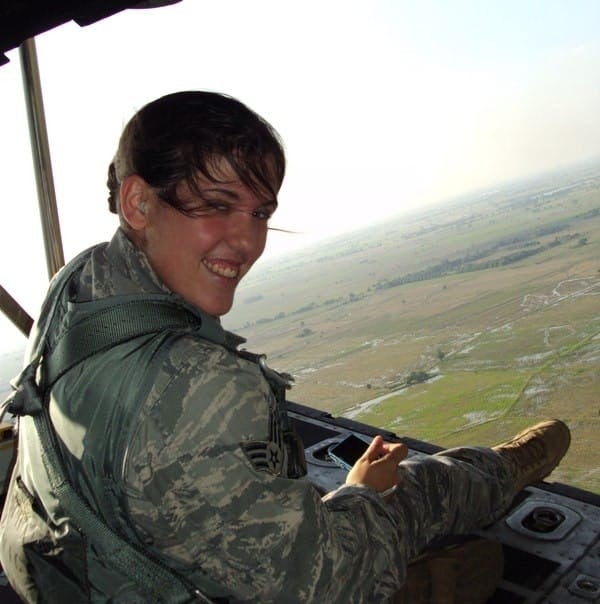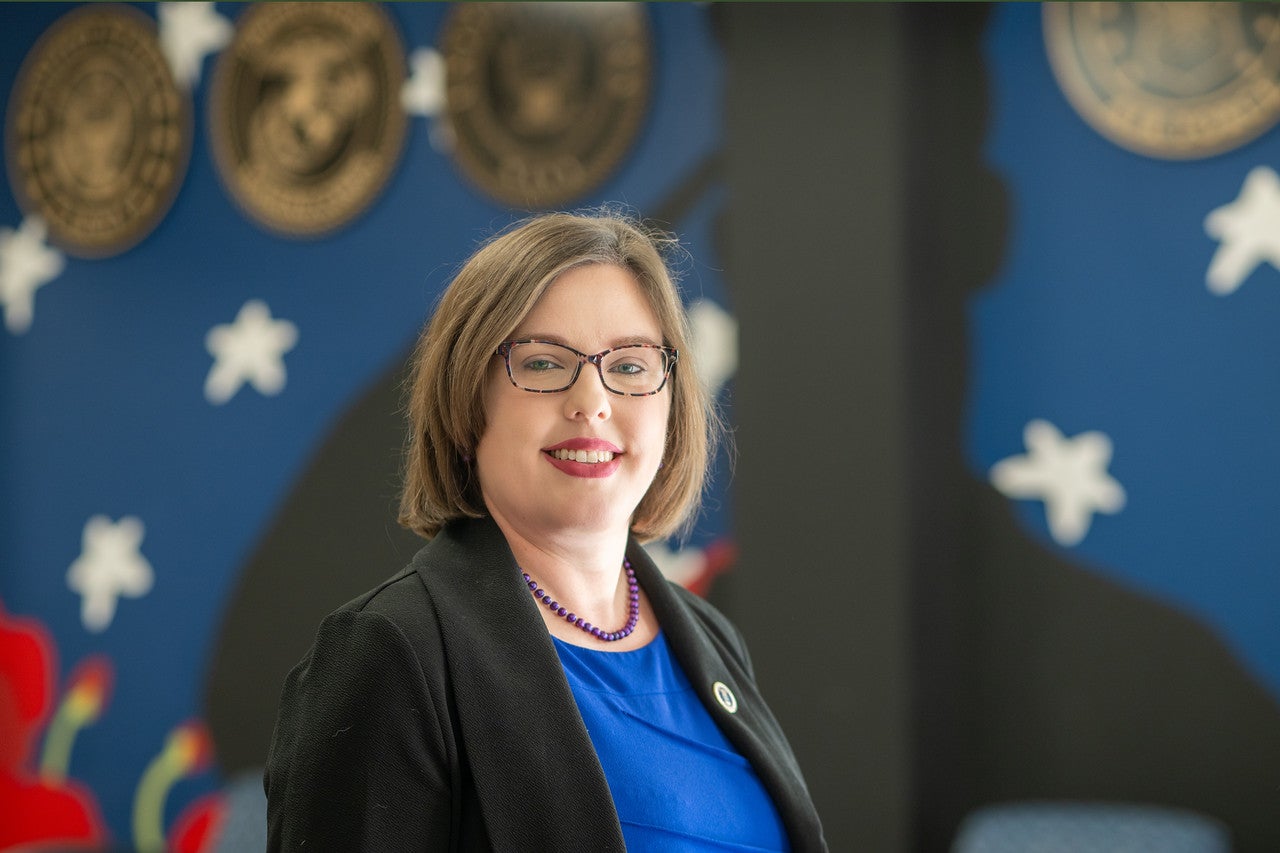In the Dodge family, military service isn’t just tradition. It is a legacy woven through generations. Since World War II, grandfathers served in the U.S. Navy and Army, uncles wore Air Force and Navy uniforms, and a father served in the Army before pursuing a career as a police officer. Then came a new chapter: the daughters—Allie, Mandy, and Cassandra—stepping forward as the first women in the family to serve.
For Cassandra Dodge, PhD, now an assistant professor of cybercriminology and security studies at Indiana State University, the Air Force wasn’t part of her early plan. “I didn’t join the military directly out of high school,” she recalls. “I actually went to community college for two years because I didn’t know what I wanted to be as an adult.”
Her sisters had already enlisted — Allie in the Navy after September 11, 2001, and Mandy in the Army. Cassandra, still searching for direction, followed their lead and chose the Air Force. But even then, she was still unsure about her future.

Cassandra Dodge (left) in uniform with her sisters, service members from the U.S. Air Force, Navy, and Army.
“When you enlist, you create a ranked list of prospective jobs,” Dodge explains. “I listed intelligence analyst positions in my top three, followed by Security Forces. My dad was a police officer, so criminal justice was familiar. While it was lower on my list, the field needed more personnel, so that’s what I was assigned. That is where the criminal justice and criminology expertise started.”
Basic training and technical school at Lackland Air Force Base in Texas marked the beginning of Dodge’s military chapter. Soon, she was stationed at Royal Air Force (RAF) Mildenhall in the UK, serving in the 100th Security Forces Squadron. Her duties spanned air base security and law enforcement, and in 2008, she deployed to Al-Udeid Air Base in Qatar as part of the Fly-Away Security Team (FAST).
“Our job was to provide security for the aircraft and aircrew when we were on the ground if we were not on an airfield categorized as secured by the Department of Defense,” she explains. Those missions carried her across the Middle East and Africa, supporting Operation Iraqi Freedom, Operation Enduring Freedom, and operations in support of the Horn of Africa.
Later, in the 353rd Special Operations Support Squadron at Kadena Air Base in Okinawa, Japan, Dodge continued FAST missions throughout Eastern Asia and stepped into the role of security manager, validating and assisting in the renewal of security clearances. “Throughout my enlistment, it became apparent to everyone around me that I had an aptitude for computing. My squadron’s IT department liked me – they never had work tickets for simple tasks if I was in the office,” Dodge says.

When she left the Air Force, Dodge faced a crossroads: criminal justice or computer science? Her father’s advice—“Why not something that does both?”—sparked a new path. She minored in Information Systems while finishing her undergraduate degree in criminal justice and police science, then pressed forward into graduate school. Agencies weren’t yet hiring for digital forensics, but Dodge persisted, earning a graduate certificate in the field while pursuing her doctorate in criminology. Today, while serving as a faculty supervisor for the Vigo County High-Tech Crime Unit, hosted on Indiana State’s campus, she advises students as they investigate digital forensics cases, fulfilling the dream she first had as an undergraduate.
As advisor of the Student Veterans of America chapter at Indiana State, Dodge helps foster connection and support. The University has earned the Purple Star Collegiate rating from the Indiana Council on Higher Education, recognizing its resources and support for veteran students. “We’re making efforts to improve those supports. Indiana State is a forward-thinking institution where a student isn’t lost in the crowd,” Dodge says.
Dodge can relate to many of the student-veterans at Indiana State who need help during their transition to academia. She was once in their shoes. “Coming in as an adult learner with a different set of life experiences, there was a disconnect between me and my peers,” she says. “I couldn’t put myself back in their shoes when it’s been years since I was in school.”
Finding other student veterans provided a safety net — a community that understood the camaraderie between veterans and the feeling of being a fish out of water. She adds, “We had a clearer idea of what our futures were going to look like, maybe compared to some of our peers.”
Her advice to adult learners: “See your differences as a strength. Find communities—on campus or in the broader area—that offer social support. Don’t just become isolated in your own home. You need something other than your coursework.”
The skills Dodge honed in the Air Force—law enforcement, security management, and especially communication—now shape her teaching. Overseas, working with partner nations, she learned to adapt her language for various audiences. She now uses this skill in the classroom. “If a student doesn’t understand the way I said something the first time, then it’s on me to rephrase it in a way that they understand,” Dodge says.
Mentorship is also crucial to her work at Indiana State. She adds, “I would not be where I am today if I did not have the mentors that I had. I try to pass that on to my students – whether that means helping them go to graduate school or find productive careers.”
For Dodge, military service was both a family tradition and a personal journey – one that shaped her career, her teaching, and her commitment to mentoring the next generation. Today, she goes ALL IN to build community and ensure veterans find their place in higher education. On Veterans Day, her story reminds us that service doesn’t end with taking off a uniform. It continues in classrooms and careers, and in the lives touched along the way.
